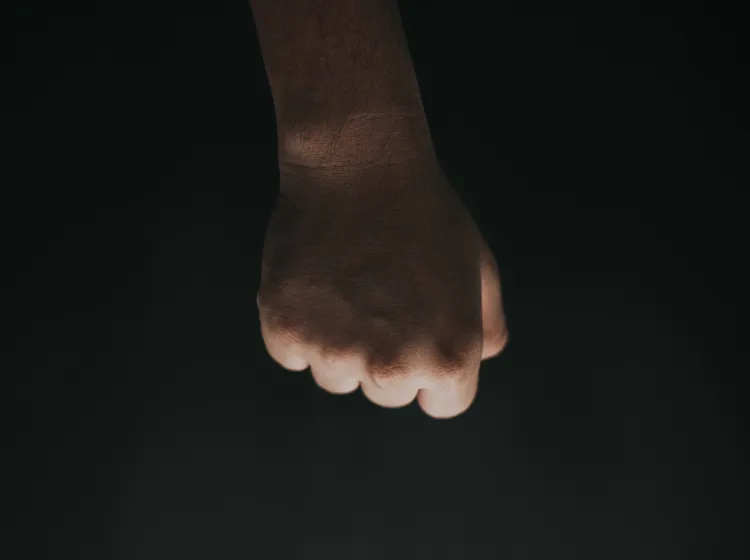
Duncan had his first serious relationship at 17 years old. He was verbally and emotionally abusive, using unkind words, and accusing his partner of infidelity. “I was very insecure and this showed with jealous thoughts and spiteful behaviour, so I thought it was okay, as I had heard rumours she was unfaithful, so she ‘deserved it’”.
In his last relationship it escalated to physical abuse, and Duncan became scared of his actions. He felt “sick to the stomach” when he first heard the term ‘domestic abuse’ applied to his relationship. Duncan says “I still do now, whenever it’s mentioned. I think it will haunt me forever. I witnessed my father being physically abusive towards my mother, and I didn’t want to be the same as him, yet here I am with the same label.”
Duncan and his partner would hide the abuse from friends and family, particularly in social settings. “I was ashamed, and she was ashamed and fearful. Our relationship in private was in a bubble I guess. I witnessed the same with mum and dad, the public face of happy families was contrasted with the nightly occurrence of my siblings and I hiding under the duvet listening to the sound of shouting and pots and pans being thrown down stairs, then silence. It was never talked about afterwards either.”
Duncan says that it would have been difficult for friends and family to spot the signs that abuse was happening. Duncan wasn’t overtly abusive in public, unless he was drunk or on drugs. However, he was highly strung at times, and would be “snappy” with friends and family. “My drug and alcohol use also escalated over the years. I guess they could have asked themselves the question ‘how is his behaviour in relationships, if he’s like this with us?’”
Duncan’s mother tried to get involved a couple of times, as she had been in an abusive relationship herself and possibly noticed similar behaviours. But Duncan shut out all his friends and family eventually, in order not to have to talk about it or even recognise his behaviour as abusive. “I was ashamed, but wouldn’t have admitted it to anyone.”
Duncan’s life turned around when he received a prison sentence for the last incident. He sees this as “the best thing that happened”. Duncan was able to make several changes whilst inside, such as stopping his spiralling drug and alcohol use and starting to look at his behaviours in and out of relationships. Following prison, Duncan was referred by probation to the Resolve to Stop the Violence Programme (RSVP), a service run by DHI. The programme helped him access the support he needed to recover from his drug and alcohol use and, critically, it was as a result of the programme that Duncan started to gain some insight into the effects of domestic abuse on his children, not wanting them to have the same childhood as he had. During the time on the programme. Duncan also become much more open and honest about his situation, having admitted that he had tried to contact his ex-partner while being on a restraining order. This was a situation, thanks to the RSVP programme, that could be resolved well.
When asked what advice would he give to someone who is a perpetrator in an abusive relationship, he says: “In my experience domestic abuse comes from somewhere, so first of all be honest with yourself and someone you trust about your insecurities. Addressing the past has been a key thing for me, exposing the root cause of controlling behaviours. For me, not being able to let go of something was a warning sign. Secondly, be aware that unless you do address it early on, the chances are high of the abuse escalating in seriousness, or frequency.”
RSVP is kindly funded by St. John’s Foundation.
Get news from Developing Health & Independence in your inbox. See our privacy policy.